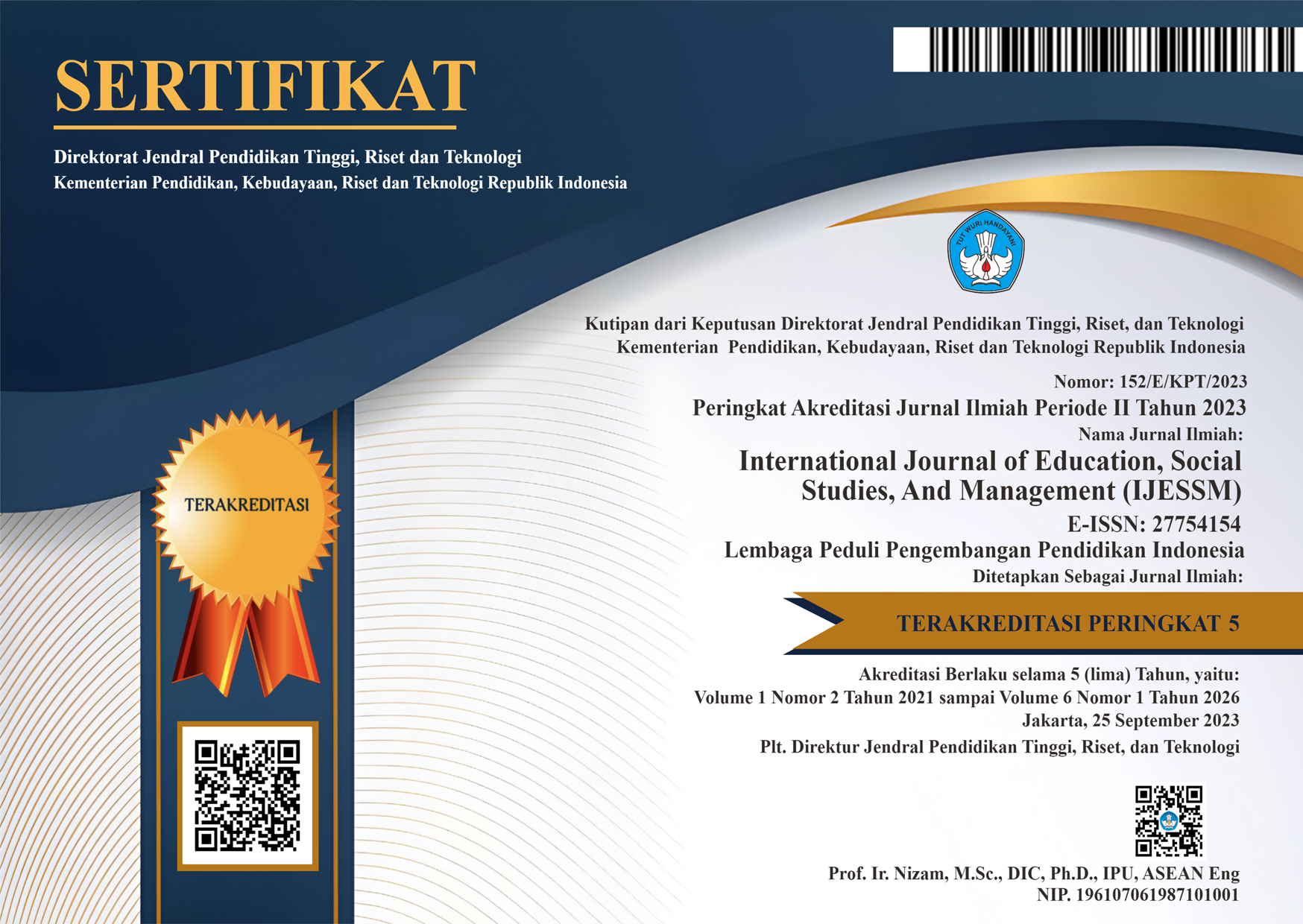Analysis the Conformity of Graduate Competency Standards (SKL), Core Competencies (KI), Basic Competencies (KD) AND Indicators of Islamic Education Curriculum at SD Muhammadiyah 02 Medan
DOI:
https://doi.org/10.52121/ijessm.v5i3.885Keywords:
Competency Standards, Core Competencies, Basic Competencies, Indicators, Islamic Education CurriculumAbstract
This study analyzes the suitability of the development of graduate competency standards (SKL), core competencies (KI), basic competencies (KD), and indicators of Islamic Education Curriculum at SD Muhammadiyah 02 Medan. This research uses a qualitative approach. Qualitative research is naturalistic (Moleong, 2017). According to Suharsimi Arikunto (2008), qualitative research is research that describes things as they are. Data collection in this study used observation, interviews, and documentation. Data analysis used the Miles and Huberman model. The analysis of the suitability of Graduate Competency Standards (SKL), Core Competencies (KI), Basic Competencies (KD), and indicators in the Islamic Education curriculum in schools aims to evaluate the extent to which the existing Islamic Education curriculum has met the learning standards and needs of students at SD Muhammadiyah 02 Medan. Provide a better understanding of the development of the Islamic Education curriculum and help teachers and policy makers in optimizing the learning process. Therefore, the activity of analyzing the suitability between SKL, KI, KD, and Indicators is very important for teachers to do, because this allows teachers to plan effective teaching and create meaningful learning experiences for students at school.This study analyzes the suitability of the development of graduate competency standards (SKL), core competencies (KI), basic competencies (KD), and indicators of Islamic Education Curriculum at SD Muhammadiyah 02 Medan. This research uses a qualitative approach. Qualitative research is naturalistic (Moleong, 2017). According to Suharsimi Arikunto (2008), qualitative research is research that describes things as they are. Data collection in this study used observation, interviews, and documentation. Data analysis used the Miles and Huberman model. The analysis of the suitability of Graduate Competency Standards (SKL), Core Competencies (KI), Basic Competencies (KD), and indicators in the Islamic Education curriculum in schools aims to evaluate the extent to which the existing Islamic Education curriculum has met the learning standards and needs of students at SD Muhammadiyah 02 Medan. Provide a better understanding of the development of the Islamic Education curriculum and help teachers and policy makers in optimizing the learning process. Therefore, the activity of analyzing the suitability between SKL, KI, KD, and Indicators is very important for teachers to do, because this allows teachers to plan effective teaching and create meaningful learning experiences for students at school.
Downloads
Published
How to Cite
Issue
Section
License
Copyright (c) 2025 Ade Irmayani, Rahmansyah, Ahmad Mukhlasin, Mukhlis, Darno

This work is licensed under a Creative Commons Attribution 4.0 International License.

















